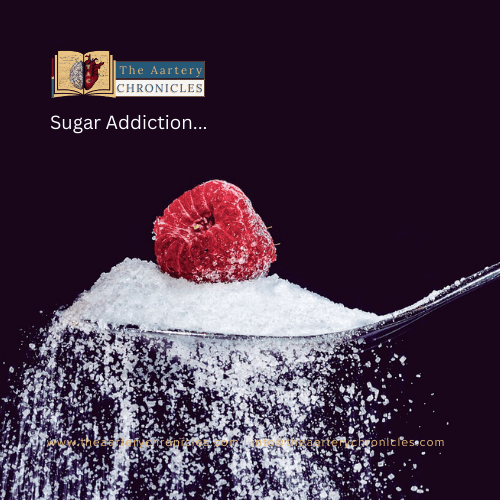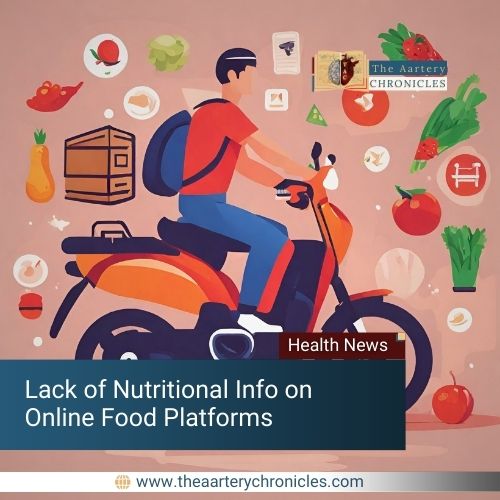

Sugar Addiction: Impacts Of Added Sugar On Your Body
In the realm of sugars, nature provides us with inherent sweetness in fruits and milk, where sugars like lactose and fructose are naturally present. Grains and whole unprocessed foods also contribute to the array of natural sugars.
On the flip side, the whole range of processed foods introduces us to added sugars, such as cane juice, dextrose, and high fructose corn syrup. These are infused with sugar to enhance the flavour of various products. Remarkably, around 74% of processed foods boast the addition of these sugars. However, it’s crucial to acknowledge the potential consequences, as excessive sugar intake has been identified as a primary contributor to metabolic disorders, including diabetes, PCOS/PCOD, and obesity. This emphasizes the importance of mindful sugar consumption and the significant impact it can have on our overall health.
What are normal glucose levels?
In understanding blood glucose levels, the World Health Organization (WHO) provides valuable references. Normal fasting blood glucose concentrations, as per WHO guidelines, are anticipated to fall within the range of 70 mg/dL (3.9 mmol/L) to 100 mg/dL (5.6 mmol/L). Additionally, post-meal glucose levels are ideally expected to hover around 140 mg/dL approximately two hours after eating.
The two important conditions related to glucose levels in the body:
- Hyperglycemia: Hyperglycemia signifies a state where blood glucose levels soar, typically exceeding 125 mg/dL during fasting and surpassing 180 mg/dL two hours after meals. This condition is recognized as the hallmark of diabetes onset. Monitoring and managing blood glucose levels become paramount in preventing and addressing hyperglycemia.
- Hypoglycemia: Conversely, hypoglycemia occurs when blood glucose levels dip below 70 mg/dL. It’s essential to recognize and address hypoglycemia promptly as it can lead to various symptoms, including dizziness and confusion. Maintaining stable blood glucose levels through proper nutrition and medication management is crucial in preventing hypoglycemic episodes
Why do we crave sugar?
Sugar cravings can stem from various factors that may include:
- Blood Sugar Imbalances: Fluctuations in blood sugar levels can trigger cravings for a quick energy boost, leading to a desire for sugary foods.
- Nutrient Deficiencies: Deficiencies in essential vitamins and minerals, such as magnesium, can prompt cravings as the body seeks to address these imbalances.
- Dopamine Release: Sugar consumption activates the brain’s reward system, releasing dopamine, the “feel-good” neurotransmitter. This pleasure response can create a craving for the rewarding taste of sugar.
- Stress: Stress triggers the release of cortisol, which, in turn, can increase sugar cravings as a coping mechanism.
- Thirst: Dehydration can sometimes be misinterpreted as hunger or sugar cravings. Drinking water can help alleviate this.
- Habit: Regular consumption of sugary foods can create a habit, leading to cravings even when the body doesn’t necessarily need additional sugar.
- Insufficient Fiber Intake: Diets low in fiber may not provide the sustained energy needed, leading to cravings for quick energy sources like sugar.
- Lack of Nutrients: A diet lacking in overall nutrients can result in cravings, as the body seeks the missing elements found in sugary foods.
Signs of Excessive Sugar Consumption
Excessive sugar consumption can manifest in various signs and symptoms, serving as red flags for potential health issues:
- Constant Sugar Cravings:
- Sugary foods trigger the release of dopamine, activating the brain’s reward pathway. The addictive nature of these foods, coupled with their low nutrient content, can lead to persistent cravings, creating a challenging cycle to break.
- Poor Hair and Skin Health:
- Excessive sugar intake promotes inflammation and increased oil production, contributing to skin puffiness. Collagen, crucial for skin elasticity, and elastin can be compromised, resulting in poor hair and skin health. Hormonal imbalances caused by sugar may also contribute to skin issues, such as acne in women.
- Wrinkles and Saggy Skin: Sugar can impact the collagen and elastin fibers in the skin, leading to premature aging. Wrinkles and saggy skin are potential effects of prolonged high sugar consumption.
- Obesity and Bloating: High sugar consumption negatively affects the digestive system, inducing bloating and a sense of heaviness in the gut. This can occur by either drawing water into the large intestine or hindering proper nutrient absorption. Additionally, the excess calories from sugar contribute to weight gain and obesity.
- Insomnia: Sugar disrupts neurotransmitters and hormones, impacting sleep quality and leading to insomnia. The interference with metabolism-regulating hormones can contribute to late-night cravings, further exacerbating the challenge of achieving restful sleep.
- Constant Fatigue and Low Energy Levels: The spikes and crashes in blood sugar levels caused by excessive sugar intake can result in constant fatigue and low energy levels. This pattern affects overall well-being and daily productivity
Recognizing these signs is crucial for individuals to address their sugar consumption and make informed choices for their overall health and well-being.
Health Risks Associated With Excess Sugar Intake
Consuming excess sugar has been associated with the risk of developing certain health conditions such as:
- Type 2 Diabetes: High sugar consumption is linked to an increased risk of developing obesity which stands as a high risk factor for the development of type 2 diabetes.
- Inflammation and Chronic Conditions: Excessive sugar can trigger inflammation, contributing to conditions such as arthritis and heart disease. Persistent inflammation is a known factor in the development of chronic health issues.
- Tooth Decay: One of the more immediate effects of high sugar intake is an increased risk of tooth decay. Sugar provides a breeding ground for harmful bacteria in the mouth, leading to cavities and dental problems.
- Cardiovascular Diseases: High sugar consumption is linked to an elevated risk of cardiovascular diseases. It contributes to factors like obesity, high blood pressure, and abnormal lipid profiles, all of which are precursors to heart-related issues.
- Liver and Kidney Issues: The liver can be adversely affected by excessive sugar consumption, potentially leading to non-alcoholic fatty liver disease. Kidney issues, including an increased risk of chronic kidney disease, have also been associated with high sugar intake.
Recognizing these risks emphasizes the importance of moderating sugar intake and adopting a balanced, nutritious diet for long-term health and wellness.
How To Reduce Sugar Intake?
Reducing sugar intake is a commendable step towards fostering a healthier lifestyle. Here are a few tips to help achieve this goal:
- Diversify Your Plate with Whole Foods: Prioritize a variety of vegetables, fruits, whole grains, and lean proteins in your meals. These nutrient-dense options provide essential vitamins and minerals without excessive added sugars.
- Opt for Home-Cooked Meals: Cooking at home allows you to control the ingredients in your meals. It reduces reliance on processed or packaged foods often laden with hidden sugars. Home-cooked meals also foster a deeper connection with the nutritional content of your food.
- Mindful Fruit Selection: While fruits are a valuable part of a balanced diet, choosing fruits with lower fructose content, such as berries, can be a smart approach. Limiting high fructose fruits helps manage overall sugar intake.
- Choose Healthier Beverage Alternatives: Substitute sugary drinks like soft drinks with healthier options such as lime juice or tender coconut water. These choices not only hydrate but also provide beneficial nutrients without added sugars.
- Minimize Junk Food Consumption: Cutting down on processed and junk food is pivotal in reducing sugar intake. These items often harbor hidden sugars that contribute to excessive calorie consumption without offering nutritional benefits.
- Embrace a Healthy Lifestyle: Adopting an overall healthy lifestyle, including regular physical activity and sufficient sleep, complements efforts to reduce sugar intake. A holistic approach contributes to overall well-being.
- Practice Mindful Grocery Shopping: When purchasing ready-to-eat foods, sauces, or pastas, scrutinize the ingredients list. Sugar can hide behind various names, so being aware and reading labels is crucial. Look out for terms like sucrose, high fructose corn syrup, and other sugar derivatives.
- Gradual Reduction and Substitution: Instead of an abrupt overhaul, gradually reduce sugar in recipes or beverages. Substituting with healthier alternatives, such as natural sweeteners like honey or maple syrup in moderation, can make the transition smoother.
Conclusion
As we wrap up this exploration of the delightful spectrum of sugars, the prevailing message centres around achieving equilibrium and mindfulness. Nature’s gifts are abundant, and by navigating the complexities of added sugars with knowledge and intention, we empower ourselves to make choices that resonate with our health and well-being. The harmonious choices and mindful selection can contribute to a vibrant and fulfilling journey towards optimal health.

Author: Sanika Pande
Reviewed by: Dr Aarti Nehra,
MBBS, MMST








